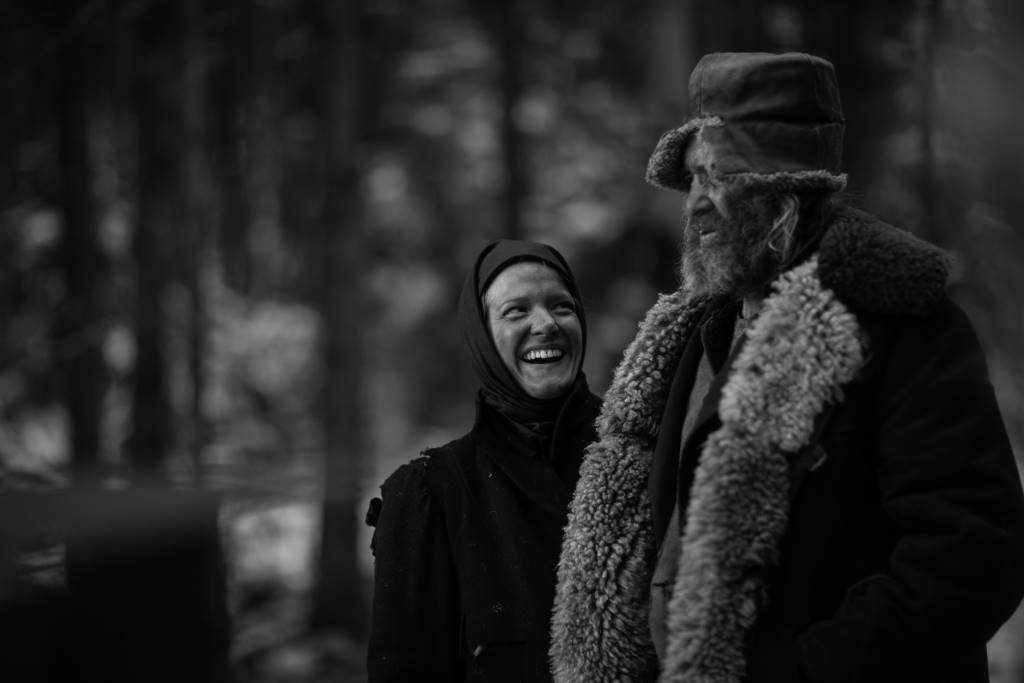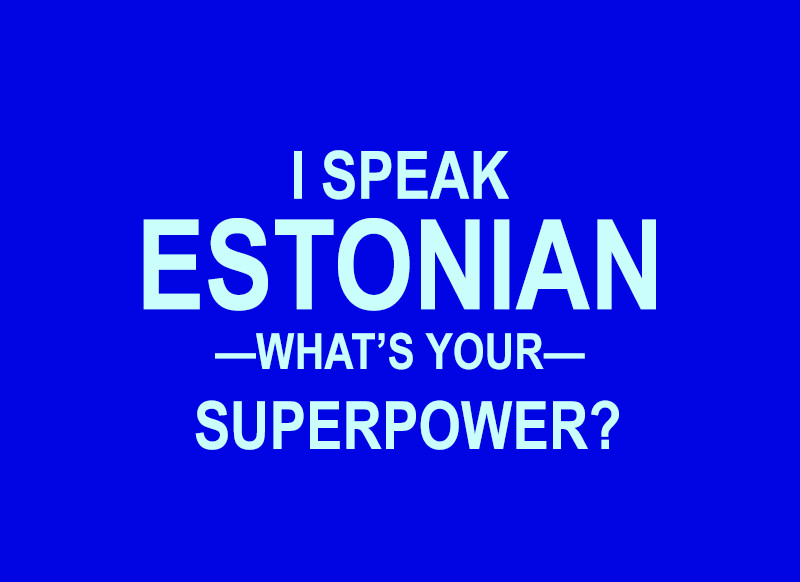Christian Reeve, a Tallinn-based British expat, writes about the monumental differences between Estonia and his native country.
Estonia has taught me some important lessons during my brief time here. Besides learning the language and the culture, I’ve also learned about some of the monumental differences between Estonia and my native country, the United Kingdom.
To enjoy silence, speak a little and think a lot
In England, people talk a lot. We cannot handle awkward silences and when people don’t speak, we usually assume there is either a problem or that there is something wrong with this person (eg anti-social etc). It’s always been a rather ridiculous mindset to have, but nevertheless, people are different from country to country.
Being in Estonia has taught me the importance of using words sparingly, and saying only what it is necessary. In England, we like to tell stories when we explain things, often saying several other things (related or unrelated) in order to explain something in detail.
At times, this is necessary because the English language is not always straightforward in terms of expression; however, a lot of the time people simply like to talk, which reminds me of that expression, “People are never really listening, they are just waiting for their opportunity to talk.”
Estonians are warm with each other
Occasionally, when you read my articles or blog posts about Estonia, you may notice that I am critical of England and the UK, but this does not mean that I do not like my country. I simply feel there is a lot that we can learn from the rest of the world, and I’ve experienced a lot of elitism, narrow-mindedness and other negative traits that I hope someday people will drop.
This is not some major revelation or something unique to the UK. Other nations think in this manner from time to time too. I guess I would just like to document my own thoughts, experiences and lessons I am learning from this great country, and let everyone make their own opinions.
Bringing this back to Estonia, my experiences of Estonians and how they interact with each other is very warm, polite and often full of camaraderie. Estonians like to make jokes, be sarcastic and use pop culture references that are unique to Estonia.
For instance, you will often hear them quote lines from Estonian movies in everyday conversation. In this sense, Estonians are quite similar to people from the UK. I love how Estonians use dark humour, it really appeals to my own sick sense of humour.
No speaking at dinner
Estonians appear to enjoy silence and being by themselves (a trait I have come to appreciate and adopt myself now). For example, during dinner it is not usual to speak here, while in England I often would experience people talking and eating during meals.
I have had a lot of time and space to think while being In Estonia, and I feel this is due to the nature of how Estonians are, coupled with the abundance of nature and rural areas in the country, something that is not always immediately nearby in the UK.
At times it’s hard to escape and be by yourself with complete silence in the UK, but in Estonia you can often find somewhere. I absolutely love this, it’s a real magical element of this country.
Sorry is not necessary all the time
I don’t know if this is just a characteristic of my own personality, or the British people overall, but I cannot deny that in the UK, people are overtly polite and apologise for pretty much everything. You’ll often find that when you’re in the UK, people will apologise even when you have bumped into them in the street.
Whenever I’ve apologised for something in Estonia I’m often greeted with the response ‘‘Miks vabandust?’’ (why sorry?) and it got me thinking. Sorry is overused as a word. I find myself using it whenever I am responsible for an accident. I feel tremendous guilt and apologise unreservedly and yet, Estonians are so relaxed about it, as if the very notion of being sorry for such a thing is simply ridiculous. So I’ve learned to save sorry for when I’ve truly hurt or wronged somebody.
Estonians appreciate you learning their language
I already knew this before coming to Estonia, simply because any country’s natives tend to appreciate it when foreigners make the effort to learn their language. That being said, Estonians react in an especially pleasant manner whenever I speak the language and they realise I am a foreigner. Quite often I’ve noticed that people don’t react at all, so I think in many cases I’ve been lucky enough to have pulled off an authentic Estonian accent!
Estonian is a tough language to learn, but every day I understand more and more, so I think in time I will be able to comprehend much more and perhaps maintain full conversations as opposed to broken Estonian and phrases.
I’m learning all the time while being here, and I think living in a foreign country in general is an excellent opportunity for anyone simply because you learn so much more about your own country, the differences between nations, and that there is so much to learn out in the world. I cannot recommend living abroad enough.
I
Cover: A pensive Estonian girl on a beach (the image is illustrative).




This really an interesting read.This aligns with my observation as well.Nigerians are known to be boisterous and the aawkward ward silence is such a big deal.And the use of the word “sorry”,I’ve been asked severally why I was saying sorry.
I have been living in the South of Estonia for 6 months, and would hazard a guess that this was written from a Tallin perspective, a million miles away from the simple country folk. I have found Estonians to be rude (never open / shut doors and say thank you) , stubborn, dreadful drivers with no concept of using indicators, the saving grace
being cheap property prices.
Actually, I’ve lived in all parts of Estonia, and am currently living in the countryside, but I get where you’re coming from. Ironically I was speaking with someone today about this exact topic. I think that the key element to consider here is that what is considered a norm (such as holding a door open for someone) in the UK is not a prevailing norm elsewhere. In fact many of the European countries I have visited do not have this norm, but it is not considered rude. In fairness to the rest of your point, there are plenty, if not, many more people exactly like how you describe residing in the UK. I’ve always found Estonians to be polite and friendly, but everyone’s experiences differ of course.
Bill Tanner, you are actually rude and ignorant because you fail to realize that these people in Estonia have their own culture. You are actually arrogant when you expect your British culture to be universal. You should be more open minded when visiting other countries and learn to RESPECT and appreciate the differences.
The first person, who makes a t shirt that says, “I speak Estonian. What’s your SuperPower”, let me know, I want to buy one! Triple XL please
Great article! Appreciate all the observations. However, I tend to disagree with “No speaking at dinner”. Estonians are quite chatty in their families or group of friends, so the dinners I’ve been part of, showed a cosy atmosphere, people sharing how their day went and so on… no silence at all.
Also, I wouldn’t say Estonians are necessarily “warm” with each other. Polite – yes, full of camaraderie – yes, fans of dark humour – hell yes, but “warm” is not a specific characteristic of Estonians.
Of course, all of the above – in my humble opinion. Thanks again for sharing and keep it up! 🙂
Thank you very much!
I appreciate the feedback and if you’d like to read more you can follow my estonian blog here: https://christianreeve93.wixsite.com/official/blog
My pleasure. Thanks, I will most definitely follow your blog. If you’d like, check out mine as well at http://www.expatinestonia.com
Sure thing!
This was a great article! I was in Estonia for about three months this summer and loved it. I’d like to return on a more permanent basis at some point. What resources did you use to help you learn Estonian? I haven’t had much luck with finding helpful resources. Thanks!
Thank you!. That’s great news, any particular area that you’re thinking of moving to?. I’m still very much a beginner, but I’ve been using online apps such as Memrise. You have to do a lot of crosschecking with online language resources simply because they’re not always correct. That being said, Memrise seems to be correct 95% of the time. No problem!, thanks for reading my article!